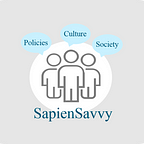The Irony of Labels
How Definition becomes Obscure
Instincts
Our brains are very good at categorizing. All-day long, brains experience stimuli and lump those stimuli into like categories. What happens next? Our brains slap a label on it if there isn’t one already. This process is instinctual for us. Without categorizations, it’s hard to know how to feel about something. We label ourselves, others, emotions, food, music, and so much more! Why do we use labels?
Purpose of Labels
We use labels for many different reasons. We use them to describe the world around us so that others understand what we’re referring to with a simple phrase or term. We compare things to sort into categories. We incite feelings by expressing labels. Calling names and using terms of endearment are two common ways. We categorize ourselves into groups. A key focus is to improve communication and understanding. Is this a beneficial process or a hindrance? It’s a bit of both.
Benefits of Labels
When we label, we’re able to compare the stuff in the world around us more efficiently. We create categories that help us to determine who we are as an individual and as a society. In many instances, the label is what determines how we feel about something. If you’re a student, it’s a safe bet that homework isn’t your favorite thing. You might be a rare case who loves it. Even if you thoroughly enjoy it, some of the topics you were probably less fond of than others.
Labels can help us with survival. If I see a label stating that something is poisonous, it’s a safe bet that if my body absorbs it, I’ll likely get deathly sick or could die. If the label says hot, it’ll probably burn me.
Labels can help us determine likelihoods in preferences. For instance, if you’re a person who prefers country over rap, it’s a safe bet that you’d enjoy a rodeo over a rap battle concert. Am I wrong about that? Maybe. The point is that two of those are more likely to be in the same category. Most of these tendencies come from our personal experiences of the world around us.
Hindrances of Labels
We’re all familiar with the concept of generalizations. When we’re categorized, we’re generalized. So many assumptions occur when we’re labeled. For instance, political affiliations. Republican, democrat, liberal or conservative. Depending on your political affiliations, those labels incite positive or negative feelings. All that was necessary was reading a label about those groups. You probably thought of several beliefs that you agree with or not. Why do we do this? The assumption of thoughts and tenets become applied to all who have that label. We’re obscuring the reality of those individuals based on our predispositions. Doing so hinders communication. There’s no need to confirm when we feel we already know the answer.
Labels can make things very confusing when trying to express ourselves. An example of how this happens is when people say, “I’m a millennial. I don’t like labels”. I’ve heard this phrase a few times in recent years. This phrase is an oxymoron. Generalizing to express frustration in categorizing is a common hindrance and irony that occurs with labeling.
Conclusion
When we’re labeled, we’re ostracized. Once we make those differentiations, we’re separated from certain groups, even if we align with other groups. We all have ways in which we belong to multiple groups at the same time. Our brains insist on creating solid lines without fluidity. Focusing on labels takes away individualism. We miss the beauty of what makes us all truly unique.
